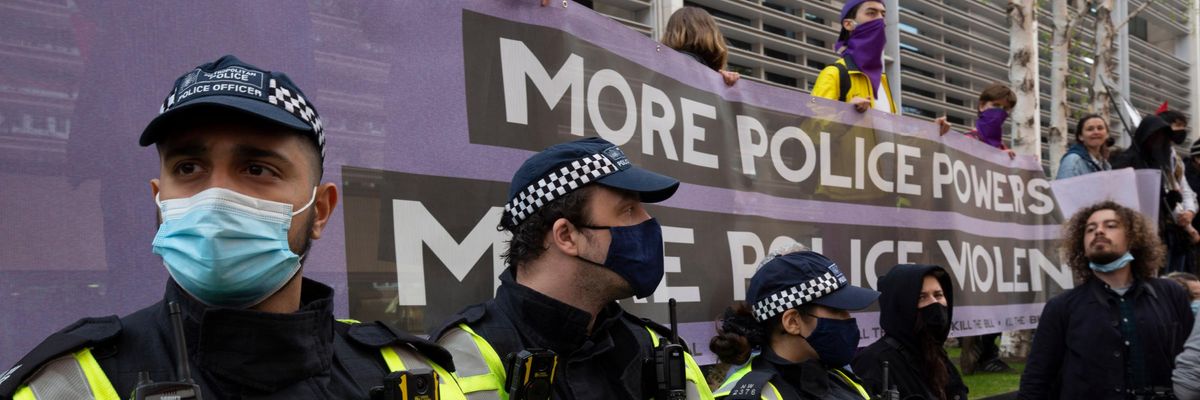At present we have a right to choose when, how, and where we protest. But another new amendment would make it an offence to obstruct major transport works--and this would obviously have an impact on people protesting to protect the environment.
These proposals have been framed as a response to Insulate Britain, but they were consulted on in autumn 2020, long before the group first blockaded the M25. This is not the home secretary taking decisive action, but an opportunistic attempt to steamroll through oppressive legislation.
Just last week, the government has added another offence, 'interfering with nationally significant infrastructure', to the bill, which could be met with a 12-month jail sentence, a fine or both. And what counts as nationally significant infrastructure? Anything from transport, harbours, downstream oil to newspaper print infrastructure--a list that the home secretary can add to. This could catch protests such as those to stop the Cambo oil field.
These additions to the Police, Crime, Sentencing and Courts Bill must be seen for what they are: a power grab.
'Oppressive and wrong'
Even before these new amendments, the bill had been met with fierce criticism. More than 600,000 people signed a petition against it, while more than 350 charities and 700 academics signed letters calling for it to be scrapped.
Across the country, we have seen strong and deep coalitions--led by groups such as Sisters Uncut, who know first-hand the threats posed by surveillance and policing on our communities--fight to defend our rights through the #KilltheBill movement.
Former police leaders warned that the bill threatens democracy and risks entrenching racial discrimination, while hundreds of healthcare, education, youth, and social workers have said its provisions would breach their professional duties.
Speaking to parliamentarians, one young person said that the 'serious violence' duty--a legal obligation (based on the Prevent Duty) that requires frontline service providers to inform police about people at risk of being involved in serious violence--risks making interactions with public services like a "police interview", which will deter people from seeking support.

